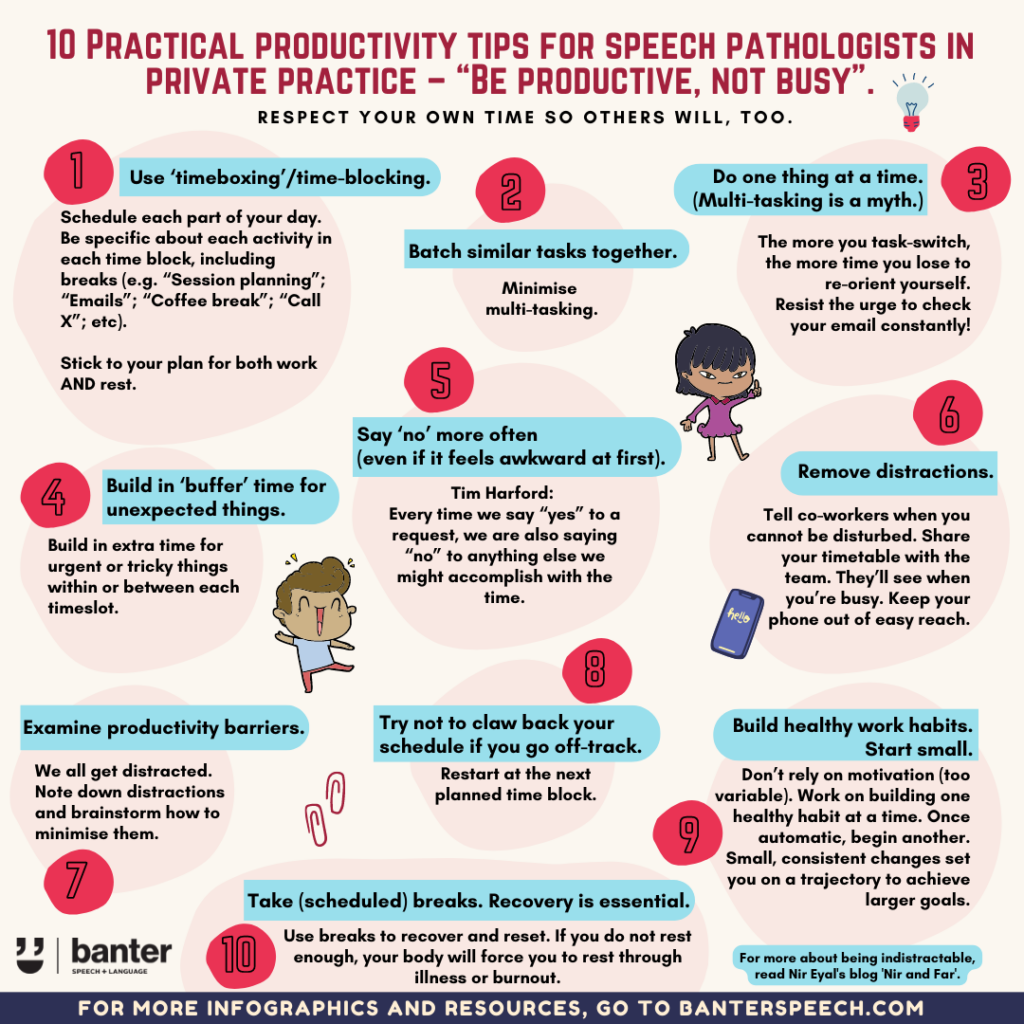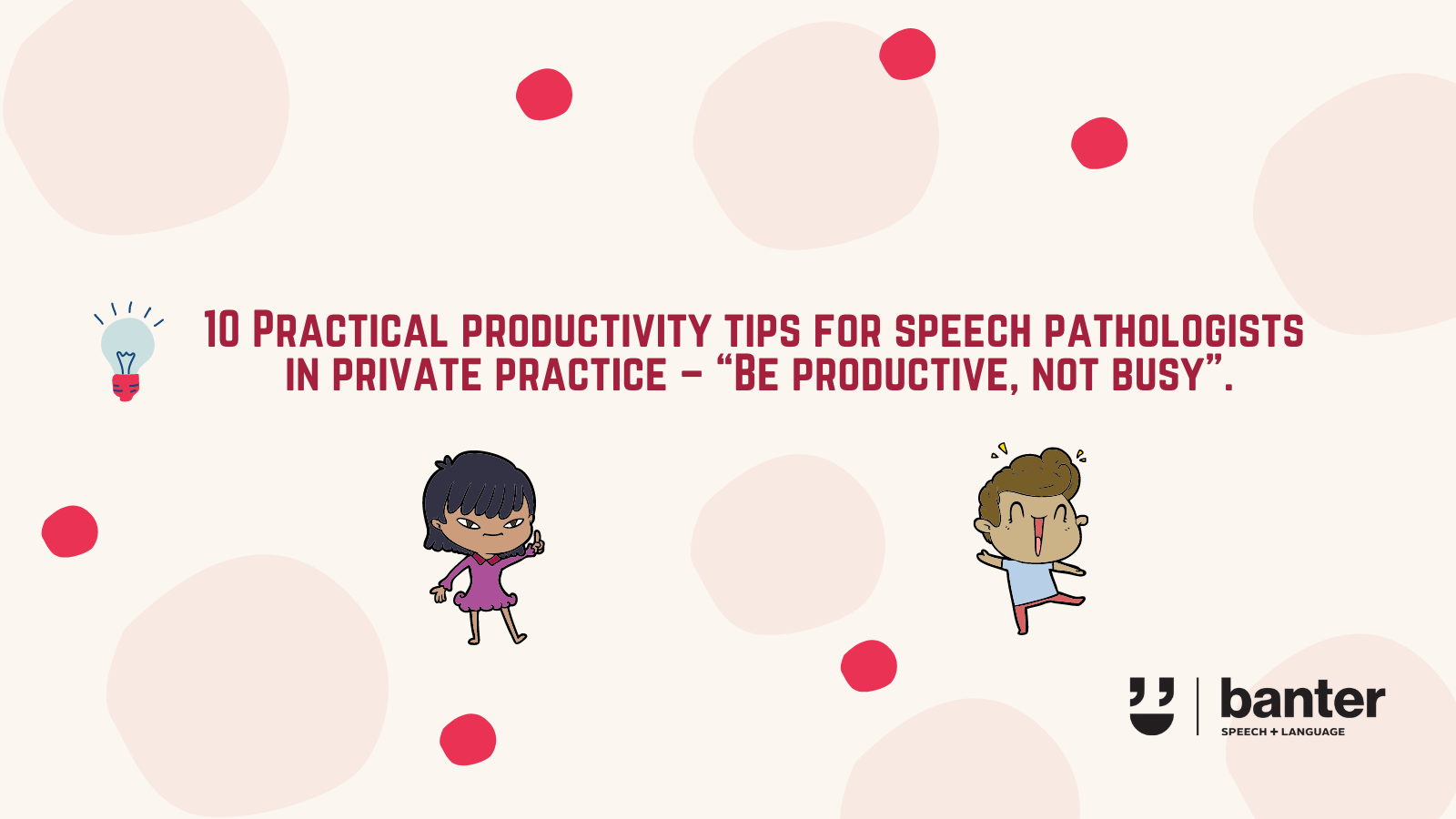10 practical productivity tips for speech pathologists in private practice – “Be productive, not busy”
Respect your own time so others will, too.
1. Use ‘timeboxing’/time-blocking.
Schedule each part of your day. Be specific about each activity in each time block, including breaks (e.g. “Session planning”; “Emails”; “Call X”; “Coffee break” etc.).
Stick to your plan for both work AND rest.
2. Do one thing at a time. (Multi-tasking is a myth.)
The more you task-switch, the more time you lose to re-orient yourself. Resist the urge to check your email constantly!
3. Batch similar tasks together.
Minimise multi-tasking.
4. Build in ‘buffer’ time for unexpected things.
Build in extra time for urgent or tricky things within or between each time slot.
5. Say ‘no’ more often (even if it feels awkward at first).
Tim Harford: Every time we say “yes” to a request, we are also saying “no” to anything else we might accomplish with the time.
6. Remove distractions.
Tell co-workers when you cannot be disturbed. Share your timetable with the team. They’ll see when you’re busy. Keep your phone out of easy reach.
7. Examine barriers to productivity.
We all get distracted. Note down distractions and brainstorm how to minimise them.
8. Try not to claw back your schedule back if you go off-track.
Restart at the next planned time block.
9. Build healthy work habits. Start small.
Don’t rely on motivation (too variable). Work on building one healthy habit at a time. Once automatic, begin another.
Small, consistent changes set you on a trajectory to achieve larger goals.
10. Take (scheduled) breaks. Recovery is essential.
Use breaks to recover and reset. If you do not rest enough, your body will force you to rest through illness or burnout.

This infographic also appears in a recent issue of Banter Booster, our weekly round up of the best speech pathology ideas and practice tips for busy speech pathologists and speech pathology students.
Sign up to receive Banter Booster in your inbox each week:
Related resources:
- Employed speech pathologists: timeless tips to manage oneself at work
- Retain your speech pathologists with better professional development systems
- 7 tips for managing office politics in private practice

Hi there, I’m David Kinnane.
Principal Speech Pathologist, Banter Speech & Language
Our talented team of certified practising speech pathologists provide unhurried, personalised and evidence-based speech pathology care to children and adults in the Inner West of Sydney and beyond, both in our clinic and via telehealth.








